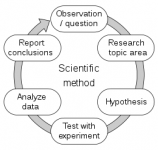I didn't see the posts about the Queen's passing, but I just want to pick up on your causal dismissal of 'faith' equaliser.I didn't see the thread nor the offensive posts but I think it's interesting a poster has compared (presumably republican) sentiments to the "victimisation and bullying of people of faith". Interesting, because republicans like me see monarchist sentiments as very much akin to the beliefs of 'faith' i.e. not based on any rational principle of organisation nor any scientific evidence. You are arguing with an emotional attachment exalted to the status of truth. And that's why people are inclined to poke fun at these mindsets.
//Interesting, because republicans like me see monarchist sentiments as very much akin to the beliefs of 'faith' i.e. not based on any rational principle of organisation nor any scientific evidence. You are arguing with an emotional attachment exalted to the status of truth. And that's why people are inclined to poke fun at these mindsets. //
With respect, whilst I understand that this is how many today understand ‘faith’ this is a modern Atheistic definition that means little to people who have ‘faith’ in God. There are reasons that 2,000 years of the best minds in western civilisation have been convinced of the existence of a mono-theistic God, and it isn’t their feelings or because they were stupid. CS Lewis said: “Faith, in the sense in which I am here using the word, is the art of holding on to things your reason has once accepted, in spite of your changing moods.”
You say 'faith' is not //based on any rational principle of organisation...//. This is completely and demonstrably wrong. Since Aquinas (1225 - 1274) it has been taken as read in Christianity that the existence of God must be, and is, rationally demonstrable. Aristotle rationally demonstrated the existence of the mono-theistic God over 2,000 years ago. (Their arguments have not been refuted by the way. Not even close).
Then you say //...nor any scientific evidence//. This is also not true, but even if it were true.....so what?
The contemporary elevation of ‘scientific evidence’ to some kind of gold standard of rationality which its adherents then uncritically accept is deeply and obviously problematic. Firstly, it is a philosophical proposition, not a scientific conclusion, so it is self-refuting. Second, it cannot in principle be grounded by ‘scientific evidence’ as that would be circular, and thirdly, it cannot even be rationally grounded *at all* (and many have tried).
Leaving aside 1 and 3 for now, ‘science’ cannot be grounded by ‘scientific evidence’ because ‘science’ presupposes a boatload of non-scientific things: The assumption that there is an objective world, external to the mind of the scientist; the assumption that this world is governed by regularities of the sort that might be captured in scientific laws; the assumption that the human intellect and perceptual apparatus can uncover and accurately describe these regularities. There are more.
There's nothing wrong with these assumptions, I think they can be rationally justified. But let’s be clear - the foundation of ‘science’ is not 'scientific'. It is philosophical assumptions, and to justify those we need philosophy, specifically metaphysics. That we must reach outside of ‘science’ to metaphysics to justify its presuppositions and to interpret its results, immediately tells us that ‘science’ cannot then be the paradigm of rationality. Metaphysics is a better candidate.
This is not to question or denigrate ‘science’. Quite the reverse, I would argue that we are always rationally justified in placing confidence in ‘scientific evidence’ wherever it has been done according to the legitimate parameters of ’science’. But what we are not rationally justified in doing is elevating ‘science’ to a pseudo gold standard of rationality. That is neither ‘scientific’, nor rationally justifiable. Rather, it is pure ‘faith’ in the Atheistic ‘blind’ sense of the word.
//You are arguing with an emotional attachment exalted to the status of truth//
It may or may not be the case that someone is emotionally invested in a particular view. I tend to take the view that there are no 'unbiased' opinions. But this does not decide the truth value of any given proposition.
Belief in a given proposition should be apportioned according to the rational warrant that exists for that proposition. I would argue that there is more rational warrant for Theism than Atheism, and it is not a close contest. The Theist’s ‘faith’ need not be ‘blind'. If he has done his homework, it is a rationally unavoidable conclusion based on a preponderance of evidence. That not all of the evidence is immediately reducible to 'scientific evidence' is really a trivial point. Theism is therefore more likely to be true than Atheism because that is what the evidence points to.

